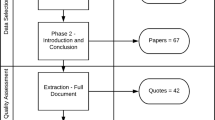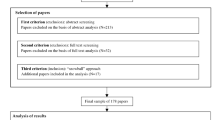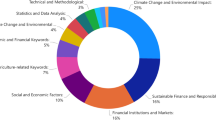Abstract
To accelerate achieving carbon neutrality, the promotion of low-carbon development in the manufacturing industry has been facilitated by the government’s implementation of policies such as carbon taxation and carbon emissions trading. These measures have been put in place to reduce carbon emissions and enhance sustainability within the manufacturing sector. Remanufacturing is an important direction for the low-carbon transformation of enterprises, and improving remanufactured product quality is crucial to the sustainability of remanufacturing enterprises. To elucidate the influence of policies aimed at reducing carbon emissions on the quality of remanufactured products, we developed a game model involving three key players: the original equipment manufacturer (OEM), the remanufacturer (IR), and retailers. This model was constructed based on the heterogeneous consumer demand for both new and remanufactured products. The study delved into the effects of various governmental policies aimed at reducing carbon emissions on the quality-related decisions made by remanufacturing enterprises. Our primary focus was on the implementation of two specific policies: a high-level carbon taxation policy and a carbon trading policy characterized by elevated carbon pricing. These policies create a favorable environment for remanufacturers (IR) to enhance the quality of their products. The sales of remanufactured products are influenced by the purchasing preferences of consumers, and carbon reduction policies can be effective in reducing the total environmental impact of manufacturing. Carbon trading policy is most conducive to environmental protection and achieves a win–win situation for economic and environmental benefits for OEMs and IRs when the carbon tax per unit is compared with the carbon trading price. Hence, this situation is favorable for the sustainable growth of existing remanufacturing businesses. Consequently, the government’s requirement for subsidies to enhance the quality of remanufactured products and boost the competitiveness of IRs in the market becomes less pronounced.




Similar content being viewed by others
Data availability
All data generated or analyzed in this study are included in the published article (and its supplementary information files).
References
Abdulla H, Abbey JD, Atalay AS, Meloy MG (2023) Show, don’t tell: education and physical exposure effects in remanufactured product markets. J Oper Manag. https://doi.org/10.1002/joom.1248
Alegoz M, Kaya O, Bayindir ZP (2021) A comparison of pure manufacturing and hybrid manufacturing–remanufacturing systems under carbon tax policy. Eur J Oper Res 294:161–173. https://doi.org/10.1016/j.ejor.2021.01.018
Alyahya M, Agag G, Aliedan M, Abdelmoety ZH, Daher MM (2023) A sustainable step forward: understanding factors affecting customers’ behaviour to purchase remanufactured products. J Retailing Con Serv 70:103172. https://doi.org/10.1016/j.jretconser.2022.103172
Atasu A, Sarvary M, Van Wassenhove LN (2008) Remanufacturing as a marketing strategy. Manag Sci 54:1731–1746. https://doi.org/10.1287/mnsc.1080.0893
Cao J, Chen X, Wu S, Kumar S (2021) Evolving remanufacturing strategies in China: an evolutionary game theory perspective. Environ Dev Sustain 23:14827–14853. https://doi.org/10.1007/s10668-021-01274-7
Chai Q, Xiao Z, Lai KH, Zhou G (2018) Can carbon cap and trade mechanism be beneficial for remanufacturing? Int J Prod Econ 203:311–321. https://doi.org/10.1016/j.ijpe.2018.07.004
Chai Q, Sun M, Lai KH, Xiao Z (2023) The effects of government subsidies and environmental regulation on remanufacturing. Comput Ind Eng 178:109126. https://doi.org/10.1016/j.cie.2023.109126
Chen W, Hu Z-H (2018) Using evolutionary game theory to study governments and manufacturers’ behavioral strategies under various carbon taxes and subsidies. J Clean Prod 201:123–141. https://doi.org/10.1016/j.jclepro.2018.08.007
Deng W (2020) Sustainable development: impacts of consumers’ risk aversion on remanufacturing model selection and environmental performance. Sustain Dev 28:1564–1574. https://doi.org/10.1002/sd.2105
Dey BK, Datta A, Sarkar B (2023) Effectiveness of carbon policies and multi-period delay in payments in a global supply chain under remanufacturing consideration. J Clean Prod 402:136539. https://doi.org/10.1016/j.jclepro.2023.136539
Dou G, Cao K (2020) A joint analysis of environmental and economic performances of closed-loop supply chains under carbon tax regulation. Comput Ind Eng 146:106624. https://doi.org/10.1016/j.cie.2020.106624
Dou G, Guo H, Zhang Q, Li X (2019) A two-period carbon tax regulation for manufacturing and remanufacturing production planning. Comput Ind Eng 128:502–513. https://doi.org/10.1016/j.cie.2018.12.064
Entezaminia A, Gharbi A, Ouhimmou M (2021) A joint production and carbon trading policy for unreliable manufacturing systems under cap-and-trade regulation. J Cleaner Prod 293:125973. https://doi.org/10.1016/j.jclepro.2021.125973
Feng D, Shen C, Pei Z (2021) Production decisions of a closed-loop supply chain considering remanufacturing and refurbishing under government subsidy. Sustain Prod Consumption 27:2058–2074. https://doi.org/10.1016/j.spc.2021.04.034
Gu W, Chhajed D, Petruzzi NC, Yalabik B (2015) Quality design and environmental implications of green consumerism in remanufacturing. Int J Prod Econ 162:55–69. https://doi.org/10.1016/j.ijpe.2014.12.040
Hu X, Yang Z, Sun J, Zhang Y (2020) Carbon tax or cap-and-trade: which is more viable for Chinese remanufacturing industry? J Cleaner Prod 243:118606. https://doi.org/10.1016/j.jclepro.2019.118606
Huangpu District People’s Government of Guangzhou City (2021) Measures for Promoting Green and Low-Carbon Development in Huangpu Development Zone High-tech Zone of Guangzhou City. http://www.hp.gov.cn/gkmlpt/content/7/7335/post_7335539.html#16150. Accessed 21 May 2021
Huang Y, Zheng B, Wang Z (2023) Supplier–remanufacturing and manufacturer–remanufacturing in a closed-loop supply chain with remanufacturing cost disruption. Ann Oper Res 324:61–92. https://doi.org/10.1007/s10479-021-04230-w
Kandukuri S, Günay EE, Al-Araidah O, Okudan Kremer GE (2021) Inventive solutions for remanufacturing using additive manufacturing: ETRIZ. J Clean Prod 305:126992. https://doi.org/10.1016/j.jclepro.2021.126992
Ke C, Yan B, Ji J (2023) Pricing new and remanufactured products under patent protection and government intervention. Ann Oper Res 324:131–161. https://doi.org/10.1007/s10479-022-05149-6
Kushwaha S, Chan FTS, Chakraborty K, Pratap S (2022) Collection and remanufacturing channels selection under a product take-back regulation with remanufacturing target. Int J Prod Res 60:7384–7410. https://doi.org/10.1080/00207543.2022.2072786
Li B, Geng Y, Xia X, Qiao D, Wang H (2021) Comparatively analyzing the impact of government subsidy and carbon tax policy on authorized remanufacturing. Int J Environ Res Public Health 18:8293. https://doi.org/10.3390/ijerph18168293
Lin B, Jia Z (2020) Does the different sectoral coverage matter? An analysis of China’s carbon trading market. Energy Policy 137:111164. https://doi.org/10.1016/j.enpol.2019.111164
Liu C, Chen J, Cai W (2021) Data-driven remanufacturability evaluation method of waste parts. IEEE Trans Ind Inf 18:4587–4595. https://doi.org/10.1109/TII.2021.3118466
Liu J, Mantin B, Song X (2022a) Rent, sell, and remanufacture: The manufacturer’s choice when remanufacturing can be outsourced. Eur J Oper Res 303:184–200. https://doi.org/10.1016/j.ejor.2022.02.018
Liu W, Li B, Wang Z, Wang Q, Chen Y, Cheng Y (2022b) Consequence analysis for integrating remanufactured products for social donation (RSD) under mandatory take-back regulation. Comput Ind Eng 171:108468. https://doi.org/10.1016/j.cie.2022.108468
Liu B, Song Q, Zheng H, Ma Y, Li K (2023a) Remanufacturing production decisions considering product life cycle and green consumers’ scale in the circular economy. Ind Manag Data Syst 123:1122–1156. https://doi.org/10.1108/IMDS-03-2022-0135
Liu C, Chen J, Wang X (2023b) Quantitative evaluation model of the quality of remanufactured product. IEEE Trans Eng Manage 1–12. https://doi.org/10.1109/TEM.2023.3268618
Liu C, Cai W, Zhang C, Wei F (2023c) Data-driven intelligent control system in remanufacturing assembly for production and resource efficiency. Int J Adv Manuf Technol 128(7–8):3531–3544. https://doi.org/10.1007/s00170-023-12080-y
Lou K (2023) Pricing models for a two-period manufacturing and remanufacturing process under carbon cap and trade mechanism. IEEE Access 11:56142–56151. https://doi.org/10.1109/ACCESS.2023.3283437
Luo R, Zhou L, Song Y, Fan T (2022) Evaluating the impact of carbon tax policy on manufacturing and remanufacturing decisions in a closed-loop supply chain. Int J Prod Econ 245:108408. https://doi.org/10.1016/j.ijpe.2022.108408
Mao H, Wang W, Liu C, Xu Y, Zhao S (2023) Effects of the carbon emission quota policy on the quality and sales of manufactured and remanufactured products. Int J Prod Econ 266:109058. https://doi.org/10.1016/j.ijpe.2023.109058
Miao Z, Mao H, Fu K, Wang Y (2018) Remanufacturing with trade-ins under carbon regulations. Comput Oper Res 89:253–268. https://doi.org/10.1016/j.cor.2016.03.014
Örsdemir A, Kemahlıoğlu-Ziya E, Parlaktürk AK (2014) Competitive quality choice and remanufacturing. Prod Oper Manag 23:48–64. https://doi.org/10.1111/poms.12040
Qiao H, Su Q (2021) Impact of government subsidy on the remanufacturing industry. Waste Manag 120:433–447. https://doi.org/10.1016/j.wasman.2020.10.005
Qin L, Chen W, Zhang Y, Ding J (2023) Cooperation or competition? The remanufacturing strategy with quality uncertainty in construction machinery industry. Comput Ind Eng 178:109106. https://doi.org/10.1016/j.cie.2023.109106
Reimann M, Xiong Y, Zhou Y (2019) Managing a closed-loop supply chain with process innovation for remanufacturing. Eur J Oper Res 276:510–518. https://doi.org/10.1016/j.ejor.2019.01.028
Sana SS (2022) A structural mathematical model on two echelon supply chain system. Ann Oper Res 315:1997–2025. https://doi.org/10.1007/s10479-020-03895-z
Taleizadeh AA, Alizadeh-Basban N, Niaki STA (2019) A closed-loop supply chain considering carbon reduction, quality improvement effort, and return policy under two remanufacturing scenarios. J Clean Prod 232:1230–1250. https://doi.org/10.1016/j.jclepro.2019.05.372
Thierry M, Salomon M, Nunen JV, Wassenhove LV (1995) Strategic issues in product recovery management. Calif Manage Rev 37(2):114–136. https://doi.org/10.2307/41165792
Tighazoui A, Turki S, Sauvey C, Sauer N (2019) Optimal design of a manufacturing-remanufacturing-transport system within a reverse logistics chain. Int J Adv Manuf Technol 5–8(101):1773–1791. https://doi.org/10.1007/s00170-018-2945-2
Ullah M (2023) Impact of transportation and carbon emissions on reverse channel selection in closed-loop supply chain management. J Cleaner Prod 394:136370. https://doi.org/10.1016/j.jclepro.2023.136370
Ullah M, Asghar I, Zahid M, Omair M, AlArjani A, Sarkar B (2021) Ramification of remanufacturing in a sustainable three-echelon closed-loop supply chain management for returnable products. J Clean Prod 290:125609. https://doi.org/10.1016/j.jclepro.2020.125609
Waltho C, Elhedhli S, Gzara F (2019) Green supply chain network design: a review focused on policy adoption and emission quantification. Int J Prod Econ 208:305–318. https://doi.org/10.1016/j.ijpe.2018.12.003
Wang Y, Wang F (2021) Production and emissions reduction decisions considering the differentiated carbon tax regulation across new and remanufactured products and consumer preference. Urban Clim 40:100992. https://doi.org/10.1016/j.uclim.2021.100992
Xia XQ, Zhu QH, Zhao SL (2017) Competition mechanism of manufacture/remanufacture considering government subsidies. J Manag Sci China 20:71–83
Xia X, Li C, Zhu Q (2020) Game analysis for the impact of carbon trading on low-carbon supply chain. J Clean Prod 276:123220. https://doi.org/10.1016/j.jclepro.2020.123220
Xia X, Li M, Li B, Wang H (2021) The impact of carbon trade on outsourcing remanufacturing. Int J Environ Res Public Health 18:10804. https://doi.org/10.3390/ijerph182010804
Xu Y, Liu C, Zhao S, Wei F (2022) Subsidizing high-quality remanufactured products for sustainability. Environ Sci Pollut Res Int 30:29029–29042. https://doi.org/10.1007/s11356-022-24183-2
Zhang F, Deng X, Phillips F, Fang C, Wang C (2020a) Impacts of industrial structure and technical progress on carbon emission intensity: evidence from 281 cities in China. Technol Forecasting Soc Change 154:119949. https://doi.org/10.1016/j.techfore.2020.119949
Zhang Q, Wang L, Zhou D (2020b) Remanufacturing under energy performance contracting-an alternative insight from sustainable production. Environ Sci Pollut Res Int 27:40811–40825. https://doi.org/10.1007/s11356-020-10116-4
Zhang H, Zhu K, Hang Z, Zhou D, Zhou Y, Xu Z (2022) Waste battery-to-reutilization decisions under government subsidies: an evolutionary game approach. Energy 259:124835. https://doi.org/10.1016/j.energy.2022.124835
Zhang J, Raza M, Khalid R, Parveen R, Ramírez-Asís EH (2021) Impact of team knowledge management, problem solving competence, interpersonal conflicts, organizational trust on project performance, a mediating role of psychological capital. Ann Oper Res:1–21. https://doi.org/10.1007/s10479-021-04334-3
Zheng X, Govindan K, Deng Q, Feng L (2019) Effects of design for the environment on firms’ production and remanufacturing strategies. Int J Prod Econ 213:217–228. https://doi.org/10.1016/j.ijpe.2019.03.019
Zheng B, Yu N, Chu J (2021) Managing sales channel selection for a manufacturer in the presence of remanufacturing. J Syst Sci Syst Eng 30:600–625. https://doi.org/10.1007/s11518-021-5504-6
Zhou Y, Xiong Y, Jin M (2021) Less is more: consumer education in a closed-loop supply chain with remanufacturing. Omega 101:102259. https://doi.org/10.1016/j.omega.2020.102259
Zhou Q, Meng C, Sheu JB, Yuen KF (2023) Remanufacturing mode and strategic decision: a game-theoretic approach. Int J Prod Econ 260:108841. https://doi.org/10.1016/j.ijpe.2023.108841
Zhu X, Wang Z, Wang Y, Li B (2017) Incentive policy options for product remanufacturing: subsidizing donations or resales? Int J Environ Res Public Health 14:1496. https://doi.org/10.3390/ijerph14121496
Zhu M, Li X, Ma J, Xu T, Zhu L (2022) Study on complex dynamics for the waste electrical and electronic equipment recycling activities oligarchs closed-loop supply chain. Environ Sci Pollut Res Int 29:4519–4539. https://doi.org/10.1007/s11356-021-15979-9
Funding
This research was supported by the National Social Science Foundation of China (No. 20BGL108); the Doctoral Research Foundation of Suzhou, University (No.2023BSK034); the Research Platform Project of Suzhou, University (No.2022ykf28); and the Horizontal Research Program of Suzhou, University (No.2023xhx097).
Author information
Authors and Affiliations
Contributions
Liu conceptualized the study. Yi Xu and Conghu Liu were responsible for study methodology. Data curation and analysis were performed as described by Yu et al. Shuiying Zhao and Huiying Mao performed the investigations, and resources were provided by Fangfang Wei. The first draft of the manuscript was written, reviewed, and edited by Yi Xu and Conghu Liu. All authors commented on the previous versions of the manuscript. All the authors have read and approved the final version of the manuscript.
Corresponding author
Ethics declarations
Ethics approval and consent to participate
Not applicable.
Consent for publication
Not applicable.
Competing interests
The authors declare no competing interests.
Additional information
Responsible Editor: Nicholas Apergis
Publisher's Note
Springer Nature remains neutral with regard to jurisdictional claims in published maps and institutional affiliations.
Rights and permissions
Springer Nature or its licensor (e.g. a society or other partner) holds exclusive rights to this article under a publishing agreement with the author(s) or other rightsholder(s); author self-archiving of the accepted manuscript version of this article is solely governed by the terms of such publishing agreement and applicable law.
About this article
Cite this article
Zhao, S., Xu, Y., Liu, C. et al. Carbon tax vs. carbon trading in China: which is better for promoting sustainable development of remanufacturing companies?. Environ Sci Pollut Res 31, 16710–16724 (2024). https://doi.org/10.1007/s11356-024-32127-1
Received:
Accepted:
Published:
Issue Date:
DOI: https://doi.org/10.1007/s11356-024-32127-1




